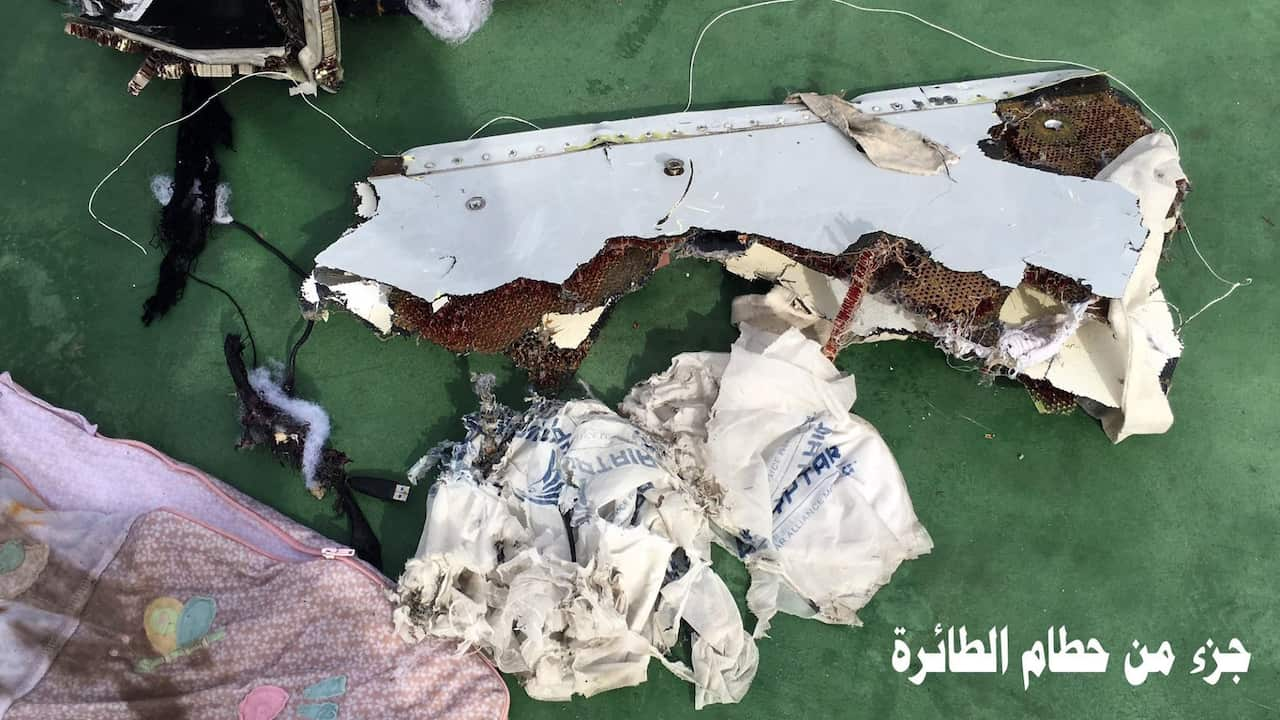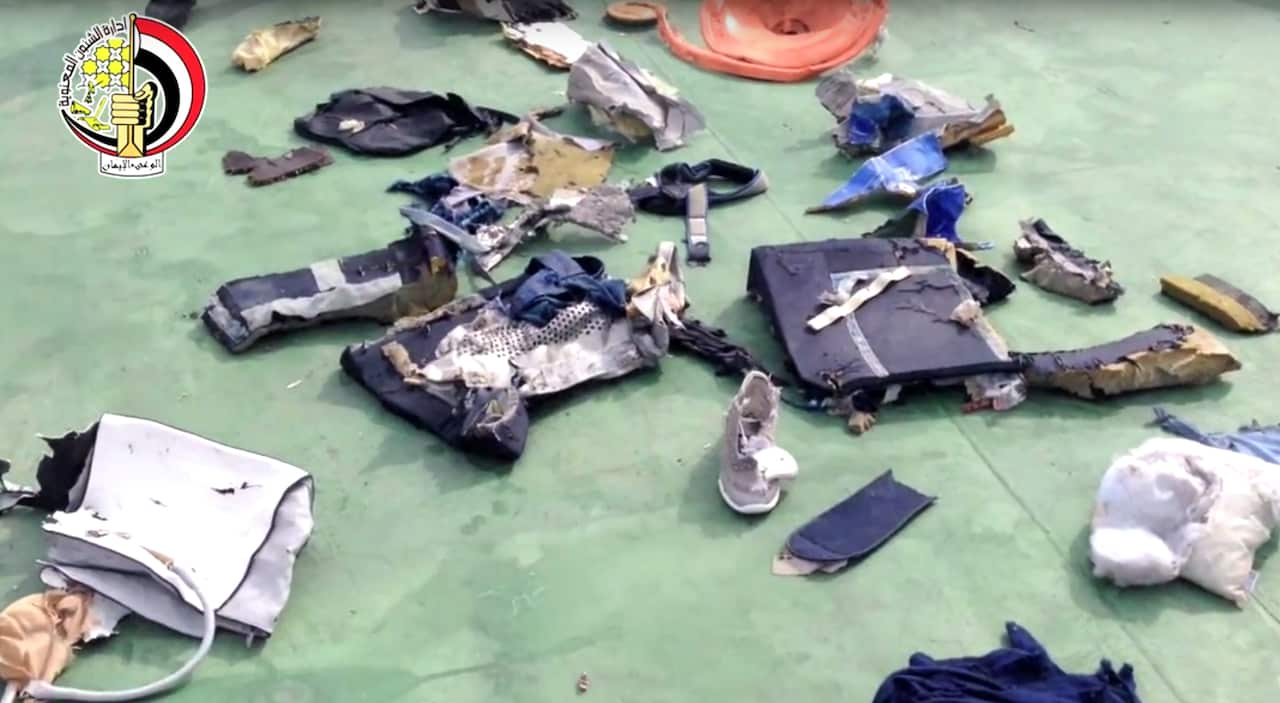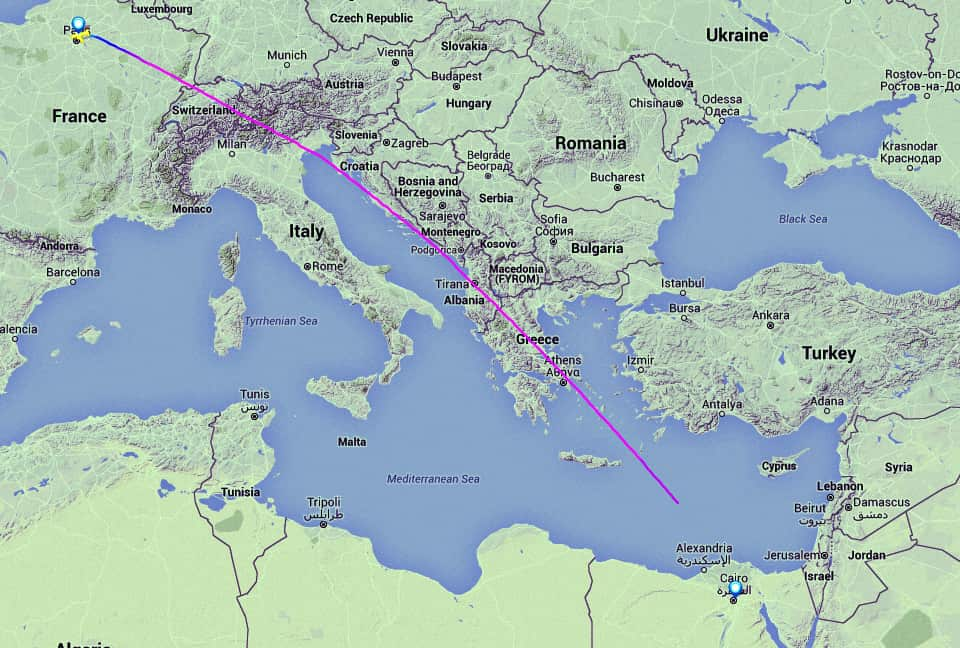The EgyptAir jet which crashed in the Mediterranean on Thursday sent a series of warnings indicating that smoke had been detected on board, shortly before it disappeared off radar screens, French investigators say.
A spokesman for France's BEA air accident investigation agency on Saturday said the signals did not indicate what caused the smoke or fire on board the plane, which plunged into the sea with 66 people on board as it was heading from Paris to Cairo.
But they offered the first clues as to what unfolded in the moments before the crash.

One aviation source said that a fire on board would likely have generated multiple warning signals, while a sudden explosion may not have generated any - though officials stress that no scenario, including explosion, is being ruled out.
Egypt said its navy had found human remains, wreckage and the personal belongings of passengers floating in the Mediterranean about 290 km north of Alexandria.
The army published pictures on Saturday on its official Facebook page of the recovered items, which included blue and white debris with EgyptAir markings, seat fabric with designs in the airline's colours, and a yellow lifejacket.
Analysis of the debris and recovery of the plane's twin flight recorders are likely to be key to determining the cause of the crash - the third blow since October to Egypt's travel industry, still reeling from political unrest following the 2011 uprising that ousted Hosni Mubarak.
Journalist Farid Faird, in Cairo for SBS News, spoke to the uncle of co-pilot Mohamed Mamdouh Assem, 25, who had logged 2766 hours of flight time and was looking forward to coming home.
"I spoke to him last on Tuesday and he sounded great,” Yasser Abdel Ghaffar, the co-pilot's uncle told SBS News. “He is like a son to me".
He also said that there's scant information from authorities and Egypt Air at this point
"We are following it just like everyone else is through the media but it's all rumours."
The latest crash adds to EgyptAir’s woes. In March, Seif ElDin Mustafa, an Egyptian national with a history of family violence, boarded MS 181 with a fake suicide belt holding it hostage and forcing it to head towards Cyprus in an effort to see his ex-wife. He is still there in Cypriot custody after seeking asylum in the country.
Last year, 224 Russian passengers were killed in a Metrojet flight after taking off from Sharm El Sheikh. Islamic State (IS) had taken responsibility for the attack and Egyptian authorities have been on high alert with the group solidifying its insurgent base in the Sinai.

The tourism industry has suffered tremendously with a 47.2 per cent drop over the past year however most Egyptians are focussed on the national tragedy of losing 30 Egyptians. Social media users have been promoting a campaign to support Egypt Air by flying with the national carrier.
For Abdel Ghaffar, Assem’s death adds to the family's woes. He told SBS News that Assem's mother, his sister, had recently passed away cementing family woes. The family had been visiting his sister's grave to commemorate Assem's death when SBS talked with him. A funeral prayer is planned later today in Cairo.
"I used to talk with him constantly. He's a good young man and always wanted to be a pilot. It was his dream," he added.
A suspected Islamic State bombing brought down a Russian airliner after it took off from Sharm el-Sheikh airport in late October, killing all 224 people on board, and an EgyptAir plane was hijacked in March by a man wearing a fake suicide belt.
A message purporting to come from Islamic State urged attacks on the United States and Europe in the Islamic holy month of Ramadan beginning in early June.
"Ramadan, the month of conquest. Get prepared...so that you make it a month of calamity on the non-believers anywhere," said the message posted on Twitter accounts that usually publish Islamic State statements.
It made no claim of responsibility for the Egyptair crash.

The signals from the plane "do not allow in any way to say what may have caused smoke or fire on board the aircraft", said a spokesman for the French BEA agency, which is assisting an official Egyptian investigation.
He added that the priority now was to find the two flight recorders, known as black boxes, containing cockpit voice recordings and data readings, from the Airbus A320 which vanished from radar early on Thursday.
Egyptian said it was too soon to reach any conclusions about the cause of the crash.
Civil Aviation Minister Sherif Fathi told reporters an additional challenge in the hunt for the black boxes was the depth of the Mediterranean in the area under search.
"What I understand is that it is 3000 (metres)," he said.
That would place the black box locator beacons, which last for 30 days, on the edge of their detectable range from the surface based on the type of acoustic equipment typically used during the first stages of a search, according to a report into the 2009 crash of an Air France jet in the Atlantic.
"No important devices from the plane have been retrieved so far," Fathi said.

